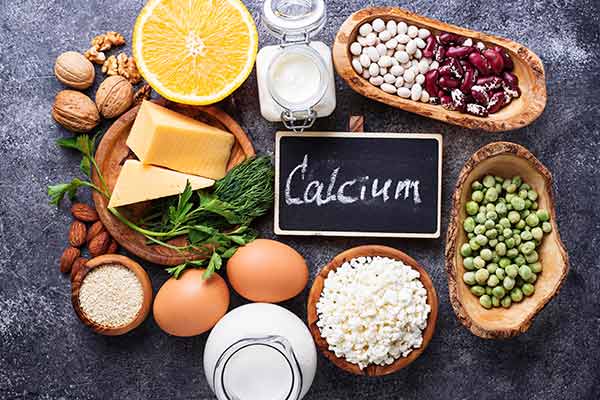Do you dream of having luxurious, healthy hair that turns heads wherever you go? Just like your body, your hair also requires specific essential nutrients for optimal growth and vitality. While haircare treatments and techniques have their place, they won’t be effective if your hair lacks the necessary nutrients it needs to flourish.
In this article, we’ll uncover the seven best nutrients that play a vital role in maintaining and protecting the health of your hair. Whether you’re looking to boost hair growth, improve hair density, or prevent hair loss, these nutrients, when included in your diet, can make a significant difference. So, let’s dive into the world of hair nutrition and reveal the foods that can help you achieve the luscious locks you’ve always wanted.
1. Protein And Amino Acids
Hair is primarily composed of a protein called keratin, and amino acids serve as the building blocks for proteins. Sulfur amino acids like cysteine and methionine are crucial for synthesizing keratin, determining hair growth rates and hair shaft diameter. L-lysine, found in the inner part of the hair root, influences hair’s shape and volume. Aim to consume 0.8-0.9 grams of protein per kilogram of your body weight to maintain healthy hair.
Sources of Protein:
- Plant Protein: Lentils, beans, peas, soybeans, and more.
- Animal Protein: Chicken, fish, beef, eggs, and more.
A meta-analysis revealed that a significant percentage of people, especially women, have lower protein intake than recommended, emphasizing the importance of meeting your protein needs for healthy hair.
2. Omega-3 Polyunsaturated Fatty Acids (PUFA)
Omega-3 PUFAs, such as EPA and DHA, are known to reduce inflammation and enhance the hair follicle growth cycle. Studies have shown that omega-3s can promote hair growth by activating the growth phase of hair follicles. Similarly, omega-6 PUFA, like arachidonic acid, stimulates hair growth by increasing growth factor expression.
Sources of Omega-3 PUFAs:
- Salmon, mackerel, flax seeds, walnuts, and more.
3. Antioxidants
Antioxidants play a critical role in combating oxidative stress caused by factors like inflammation, UV radiation, and an unhealthy lifestyle, all of which can hinder hair growth. Vitamins A, C, and E, known for their antioxidant properties, help neutralize harmful free radicals and reduce oxidative stress.
Sources of Antioxidants:
- Pumpkin, carrots, oranges, nuts, seeds, and more.
4. Vitamins
Vitamins are essential for promoting hair growth and preventing hair loss. Here are some key vitamins:
- Biotin (Vitamin B7): Vital for hair and nail growth, biotin deficiency can lead to hair loss. Sources include eggs, cheese, and more.
- Vitamins B6 and B12: Important for reducing hair loss and promoting healthy hair growth. Sources include eggs, fish, and more.
- Pantothenic Acid (Vitamin B5): Essential for hair growth, sebum regulation, and melanin production. Found in eggs, mushrooms, and more.
- Vitamins B1, B2, and B3: Deficiencies in these vitamins can lead to hair fall. Sources include pork, chicken, and more.
- Folic Acid (Vitamin B9): Helpful in reducing hair fall. Sources include spinach, lentils, and more.
- Vitamin E: An antioxidant that supports hair growth by protecting hair follicles. Sources include wheat germ oil, almonds, and more.
5. Minerals
Proper mineral intake is crucial for healthy hair growth and reducing hair fall. Here are some key minerals:
- Iron: Iron deficiency is linked to hair loss, especially in women. Sources include beef, dark leafy vegetables, and more.
- Selenium, Magnesium, and Copper: These minerals may help reduce the risk of hair loss. Sources include meat, eggs, and more.
- Zinc: Zinc deficiency can lead to slow hair growth and hair fall. Sources include meat, nuts, and more.
6. Trace Elements
Calcium and iodine are essential trace elements for hair growth. Calcium stimulates hair follicles, while iodine supports the thyroid gland’s proper functioning.
Sources of Calcium and Iodine:
- Fish, seaweed, yogurt, and more.
7. Liquids
Hydration is crucial for overall health, and it also affects hair growth. Aim to consume at least 1.5 liters of water per day, and consider other liquids like juice, soup, tea, and coffee to increase your fluid intake.
Incorporating these essential nutrients into your diet can help improve your hair health, prevent hair fall, and stimulate hair growth naturally. However, if you lead a busy lifestyle or have nutritional deficiencies, it’s advisable to consult a dermatologist for guidance on taking hair supplements. Iron, folic acid, omega-3, and multivitamins are common supplements that can support your hair’s nutritional needs, but it’s crucial to follow the prescribed dosage and seek professional advice.
Key Takeaways
Achieving healthy, vibrant hair requires the right balance of nutrients. Proteins, omega-3s, vitamins, minerals, antioxidants, and hydration are all essential components of a nourishing haircare regimen. By consuming a diet rich in these elements, you can unlock the secret to gorgeous, resilient locks.
So, start nourishing your hair from the inside out and enjoy the transformation in your hair’s health and appearance. Remember, the road to luscious locks begins with the right nutrients.
Image Source: Google
Latest Posts:
Unlock The Secret to Bigger Alluring Eyes: A Step by Step Makeup Guide
Eating Well on a Budget: Practical Tips for Healthy Affordable Meals
Monochromatic Makeup: The Trend of Harmonious Beauty
The Booming Men’s Grooming Industry: A Deep Dive
Fashion’s Digital Evolution: NFTs and Unique Ownership
Exploring the Fusion of Fashion and Technology: Wearable Tech Smart Fabrics and Beyond
The Intertwined Threads: How Fashion Choices Influence Mental Health













